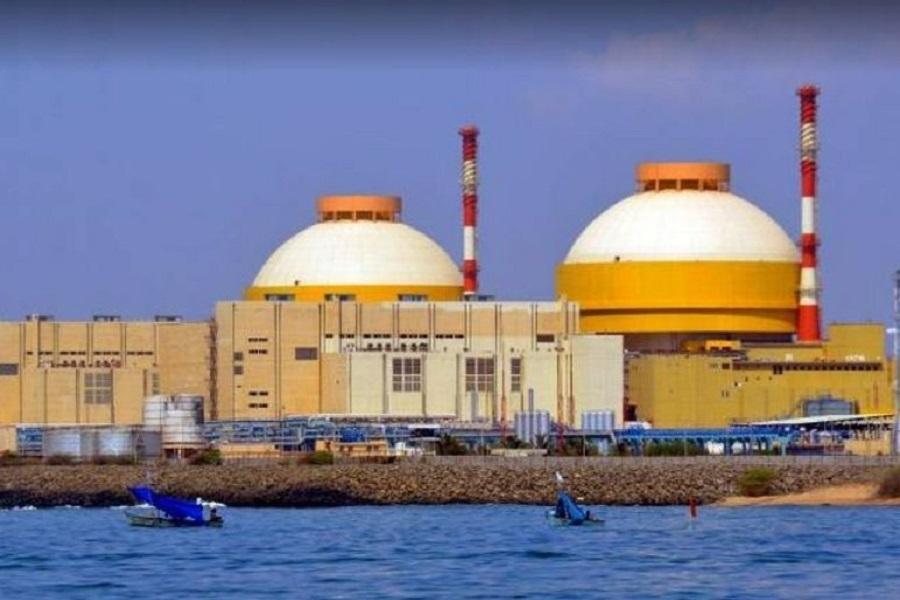
Centre Reviews 100 GW Nuclear Mission to Boost Clean Energy Goals
In a significant move to accelerate the country’s clean energy ambitions, Union Power Minister Manohar Lal Khattar and Minister of State for Atomic Energy, Dr Jitendra Singh, recently convened a high-level meeting to discuss the 100 GW Nuclear Energy Mission. The meeting aimed to propel India’s clean energy basket and reaffirm the country’s commitment to achieving Net Zero emissions, in line with Prime Minister Narendra Modi’s ambitious target.
As the global climate crisis intensifies, India has been at the forefront of efforts to reduce its carbon footprint and transition to a low-carbon economy. The 100 GW Nuclear Energy Mission is a crucial step in this direction, as it seeks to harness the potential of nuclear power to generate clean and sustainable energy.
Key Directives to Achieve the 100 GW Target
During the meeting, the Union Ministers outlined key directives to achieve the 100 GW nuclear energy target. These directives include:
- Enhancing nuclear power production: The meeting emphasized the need to increase nuclear power production to meet the growing demand for electricity. To achieve this, the government plans to add new nuclear power plants and upgrade existing ones.
- Attracting private investment: The government has announced plans to attract private investment in the nuclear energy sector to boost production and reduce reliance on public funding. This will also encourage innovation and competition in the industry.
- Improving safety standards: The meeting highlighted the importance of ensuring the highest safety standards in nuclear power plants to protect the environment and public health.
- Developing indigenous technology: The government has emphasized the need to develop indigenous technology for nuclear power plants to reduce dependence on foreign imports and enhance energy security.
- Encouraging R&D: The meeting encouraged research and development in the nuclear energy sector to improve efficiency, reduce costs, and enhance safety.
Why 100 GW Nuclear Energy Mission is Crucial for India
The 100 GW nuclear energy mission is crucial for India’s clean energy ambitions for several reasons:
- Reduced Carbon Footprint: Nuclear power is a zero-carbon source of energy, which is essential for reducing India’s carbon footprint and meeting its commitments under the Paris Agreement.
- Energy Security: Nuclear power can provide a reliable and consistent source of energy, reducing dependence on imported fossil fuels and enhancing energy security.
- Economic Growth: The nuclear energy sector has the potential to create new jobs and stimulate economic growth, particularly in rural areas where nuclear power plants are located.
- Sustainable Development: The 100 GW nuclear energy mission aligns with India’s sustainable development goals, particularly Goal 7 (Affordable and Clean Energy) and Goal 13 (Climate Action).
Challenges and Opportunities
While the 100 GW nuclear energy mission presents several challenges, it also offers opportunities for India to become a global leader in clean energy. Some of the challenges include:
- Public Perception: Nuclear power has historically been a contentious issue in India, with concerns over safety and radiation risks. The government will need to address these concerns through public awareness campaigns and education.
- Funding: The nuclear energy sector requires significant investments, which can be a challenge for the government. Private investment and international cooperation can help bridge this funding gap.
- Technology: India will need to develop and indigenize nuclear technology to reduce dependence on foreign imports and enhance energy security.
Conclusion
The 100 GW nuclear energy mission is a significant step towards achieving India’s clean energy goals and reducing its carbon footprint. With key directives outlined to achieve this target, the government is committed to making nuclear power a major contributor to the country’s clean energy basket. While challenges exist, the opportunities offered by this mission are immense, and India has the potential to become a global leader in clean energy.






